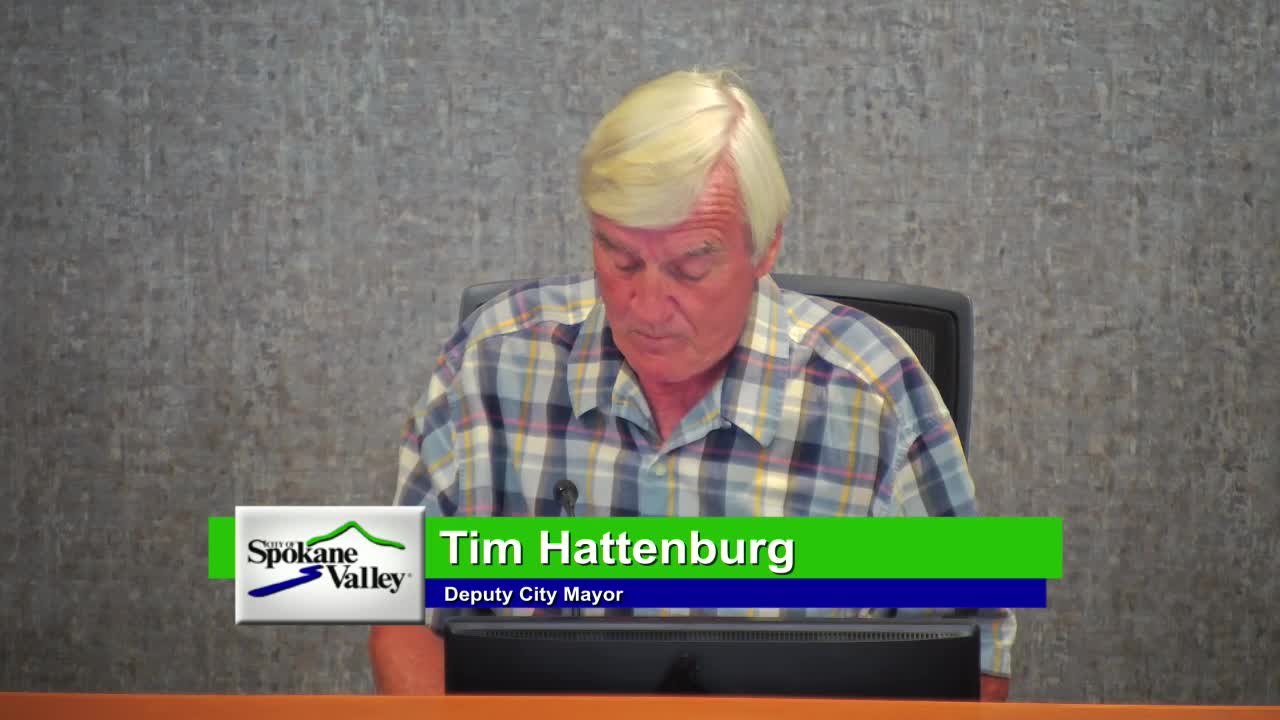Article not found
This article is no longer available. But don't worry—we've gathered other articles that discuss the same topic.
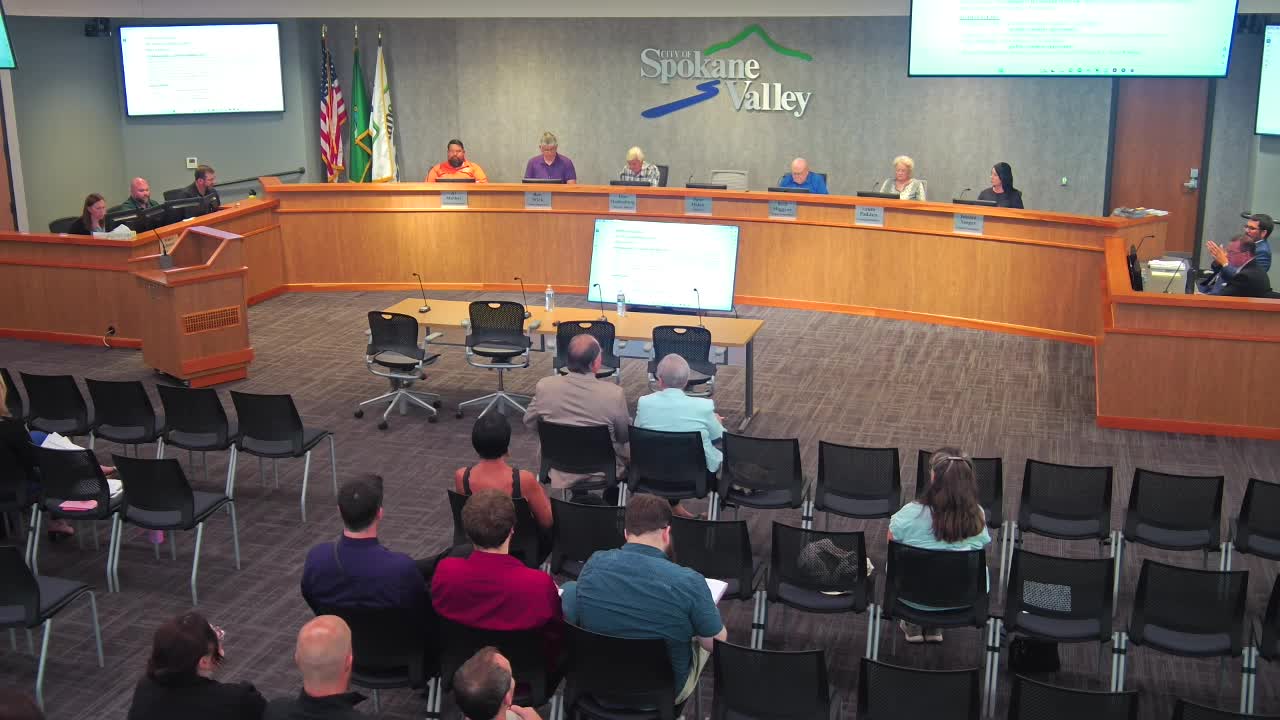
Council advances first reading of nonexclusive FatBeam telecom franchise; fee language updated but no new charges introduced
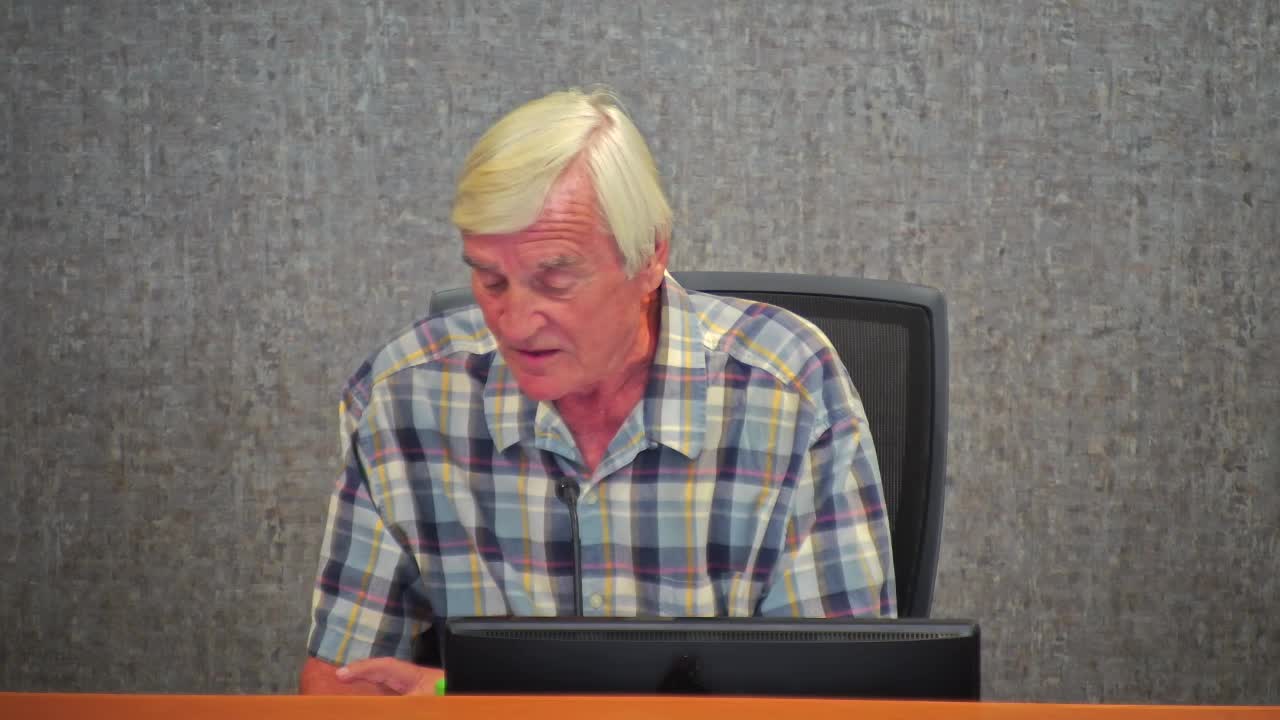
Council approves amendment to regional GMA interlocal agreement to add tribal representation
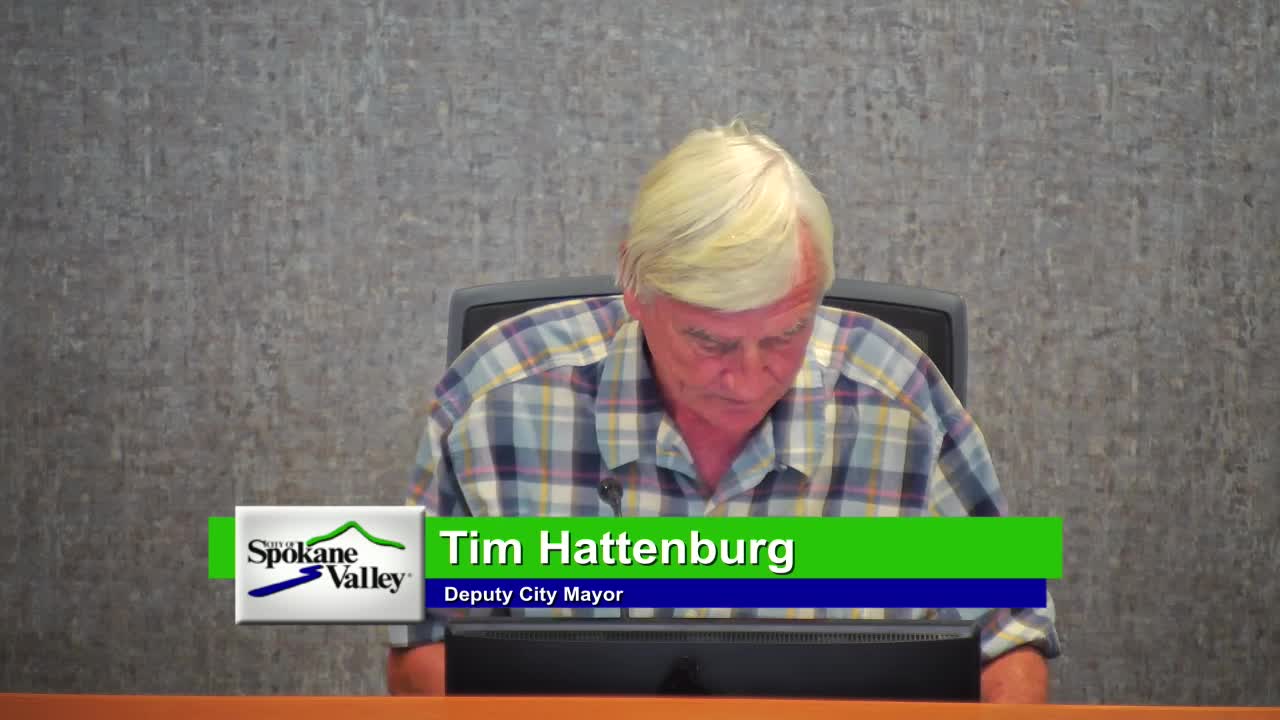
Council authorizes city manager to apply for four TIB grants; members question budget impact
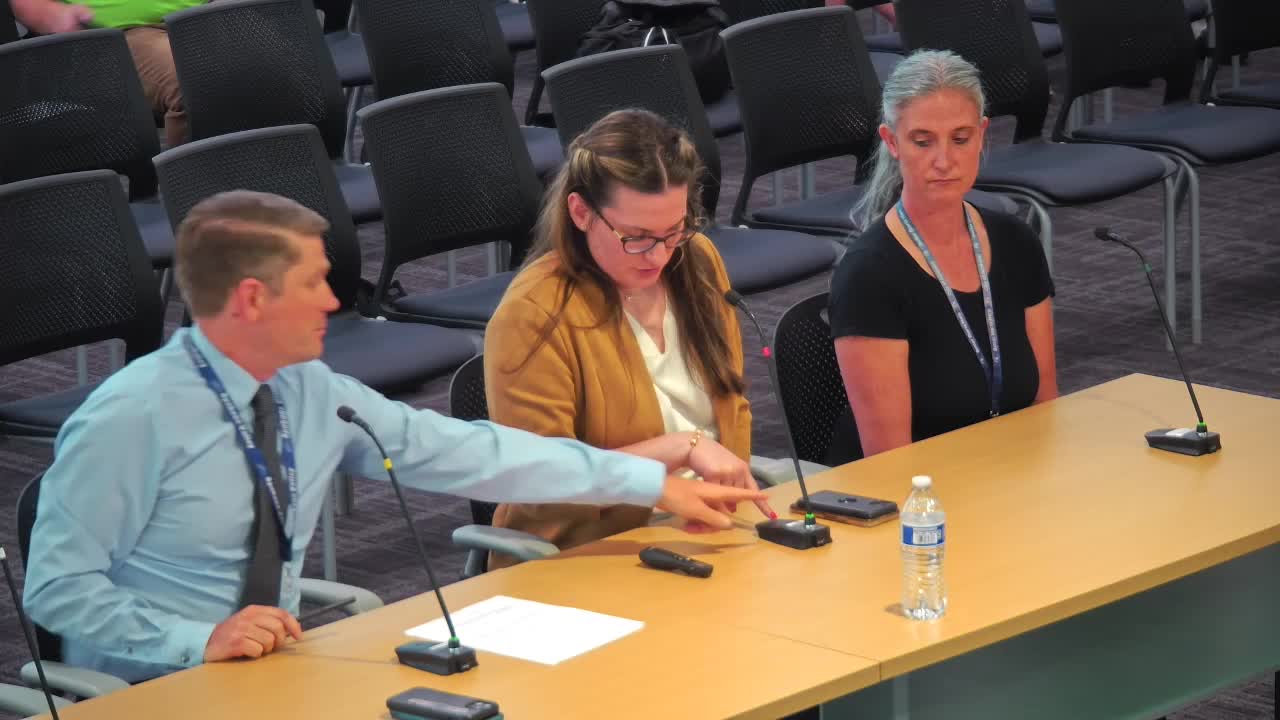
Spokane Valley officials present 2025 Point‑in‑Time count: 1,806 people identified regionwide; local outreach numbers provided
